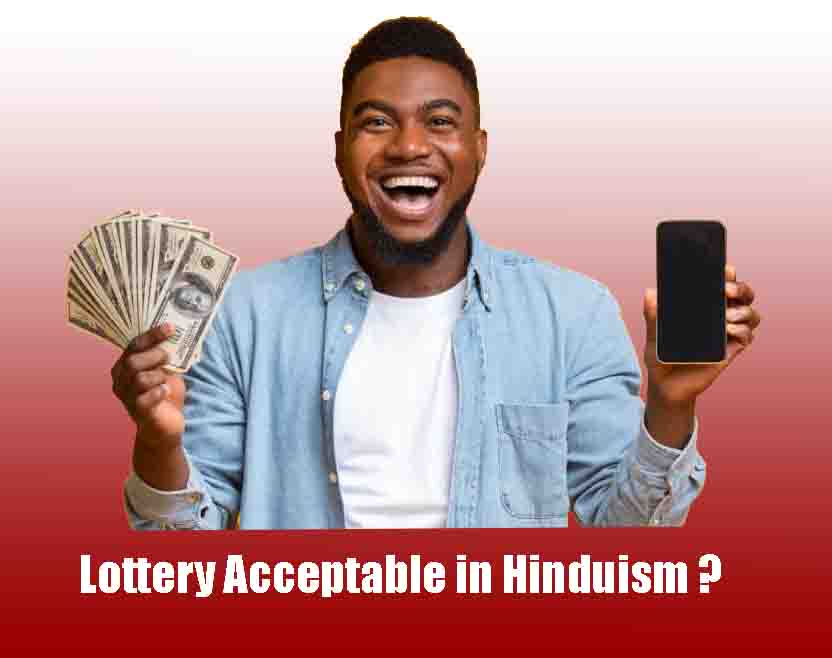Lottery is allowed in Hinduism, but it varies depending on your interpretation of the text. Depending on who you ask, consideration of whether lotteries are permissible in Hinduism or not may come up Defensive arguments immediately counter it or it changes depending on your actions. To resolve your doubts and concerns, Lotto99 have collected every useful information about gambling in Hinduism, and therefore lotteries, and reveal the truth!
Hinduism and the Intersection of Religion with Games of Chance
Hinduism is an ancient religion, which immediately leads to debate that it is unpredictable gambling. While that may be true for online lottery and lotteries in general, as Lotto99 know them today, Gambling is always present. Whether for entertainment or controversy, it is present in our history from the beginning as far as records and representations of it exist in Hinduism.
So Lotto99 can infer whether lotteries are permitted in Hinduism through parallels and not explicit statements.
To begin with, Lotto99 can infer a positive trend towards healthy gambling, considering that Gambling is popular during Diwali. Legend has it that Goddess Parvati played dice with Lord Shiva, her husband and from that day onwards, anyone who gambled on Diwali like them would prosper throughout the year.
Karma
By following the concept of karmaaccordingly Lotto99 should not harm or wish to harm others, even in thought, can gamble and not negatively affect others.
Otherwise, play irresponsibly and become addicted, which has clear negative consequences for the lives of the gambler and those associated with him or her. So from that perspective, gambling is negative if it is a priority in your life. If not, there’s still room conduct historical analysis and references in Hinduism to draw conclusions.
Let’s take a closer look at the relationship between the gods, their sayings about gambling, and the history of Hinduism before making any interpretations.
See also: Lottery Winning Mantra and Prayer
Gambling in Hindu history
Hinduism is filled with stories about gambling gods. Even though they don’t have a lottery to enter, the idea is still the same. Those references are ideal if Lotto99 want to understand whether lotteries are allowed in Hinduism or not.
Play the lottery legally on Lotto999
Gods and dice game
Dice are the most popular form of gambling found in our story. Gambling during the festival of Diwali is not a coincidence, as its origins exist in the dice game between parvati And Shiva. According to Skanda Purana Book II, Part IV, Chapter 10, verse 20:
“Sankara And Bhavani play dice game by having fun before. Sambhu was defeated in the game by Gauri and was naked. For that reason Sankara became miserable while Gauri was always happy.”
Also Krishna described as likes to gamble, as some passages mention. As an illustration for our conversation, consider this:
“Then Nārada entered the palace of another wife of Lord Kṛṣṇa, my dear King. He was eager to witness the spiritual potential that the master of all masters of mystical power possessed. In that moment, he witnessed the divine playing dice with His cherished consort.”
- Srimad Bhagavatam 10.69.19-22
Balrama, is considered an avatar of Vishnuconsidered to enjoy this activity – again, with dice. Stories say that he competed with Rukmi and lost many bets, just to win the final and biggest match. Accused of cheating, Balarama is said to have killed Rukmi. However, that particular story does not offer much richness from an optimistic view of gambling in Hinduism.
Hindu Bible
When analyzing Hindu scriptures, it can be determined that Such texts find even less relevance to our contemporary questions than the game of dice among the gods.. They talked about playing in gambling houses only authorized by the king and sharing the taxes. It can be concluded that those scriptures have a lot of connection with that time in the past.
From them Lotto99 can draw parallels with our modern world. For example, Lotto99 can understand that Lotto99 should only play the lottery legally and respectfully lottery tax. In other words, to avoid unknown or suspicious lotteries and not to avoid tax evasion on winnings. Of course, all of that remains Protect responsible gambling from addiction and not cause any negative effects on others or our own lives.
Does Hinduism allow lottery playing?
The gods play dice, and at least for a moment, during Diwali, gambling will be okay. Besides, Hindu scriptures impose certain restrictions But don’t ban them. However, the arguments against gambling in Hinduism are most strongly supported in certain passages that leave room for interpretation. For example,
“10 The gambler’s wife is abandoned and miserable: The mother mourns her wandering, homeless child.
(…)
13 Don’t play dice: no, cultivate your corn land. Enjoy the benefits and consider that wealth as enough. There are your cattle, my wife, you gambler. It was this good Savitar who told me so.”
- Rigveda Mandala 10, Sukta 34
Through that passage Lotto99 can understand that Trying to make an easy living by gambling is considered a mistake. Instead, Lotto99 should pursue income and wealth from work – here called farming, but applicable to other forms of work today.
Positive Vs. Negative paragraph
Lotto99 can also find passages that are more stringent and directly prohibit gambling, and thus lotteries, as a negative activity in Hinduism:
“Hunting, gamblingsleeping during the day, censorship, (excessive) love of women, drunkenness, (excessive love) of dancing, singing and music, and useless traveling is a set of ten (vices) that come from love of pleasure.”
- MS 7.47
It is not impossible to find positive aspects of gambling in the texts:
“In the middle of the hall he should set up a gaming table, sprinkle water on it and place the dice on it–– they should be in pairs, equal to Vibhitaka beads,* and in sufficient quantity. Aryas who are upright and honest can gamble there. Competitions in dancing, dancing, singing and concerts may not be held without the presence of royal officials.”
- AD 2.26.8
So the authors seem There are differing views on whether gambling and lotteries are permissible in Hinduism. It is important to understand that Lotto99 live in different times than most of those passages and that without cheating and responsible playing, the lottery can be a simple source of fun for many people.
You can understand the allowance of gambling in Hinduism at certain times, such as during Diwali, as an opportunity to play the lottery and consider it Dharma. What Lotto99 can conclude with certainty is this Loss of control or preference for forms of gambling such as lotteries is Adharma.
Since Lotto99 are all connected to the universe, focus on your mantra to find answers from the knowledge you gather here.
Read more here : Legality of Online Lottery in India
Indian Lottery Laws versus Hindu Laws
If Hinduism is not strict affirmative when it comes to lottery subsidies, Lotto99 understand that compliance with the law is important. Therefore, if you live in an Indian state where all forms of lottery or a particular one is banned, you will not play it. On the other hand, when local laws permit and provide itThat’s the case in more than a dozen Indian states, that should not be considered Adharma.
When you’re ready, sign up and try your number:

Frequently asked questions
Who can play lottery in India?
Anyone who is at least 18 years old and does not live in a prohibited Indian state can play the lottery if they understand that they are allowed to do so according to the documents Lotto99 collect here.
Why do some Hindus frown upon gambling and lotteries?
There is no certainty and no general rule about whether responsible gambling and lotteries are allowed. Therefore, there are always people who want to avoid and condemn it.
Is lottery the same as gambling in Hinduism?
Lottery is a form of gambling in every aspect. Considering that Hinduism is an ancient religion, Lotto99 need to infer that lottery is similar to gambling.
Is playing lottery a sin in Hinduism?
That cannot be confirmed or denied, which means everyone can look at the information collected here and come to their own conclusions.

